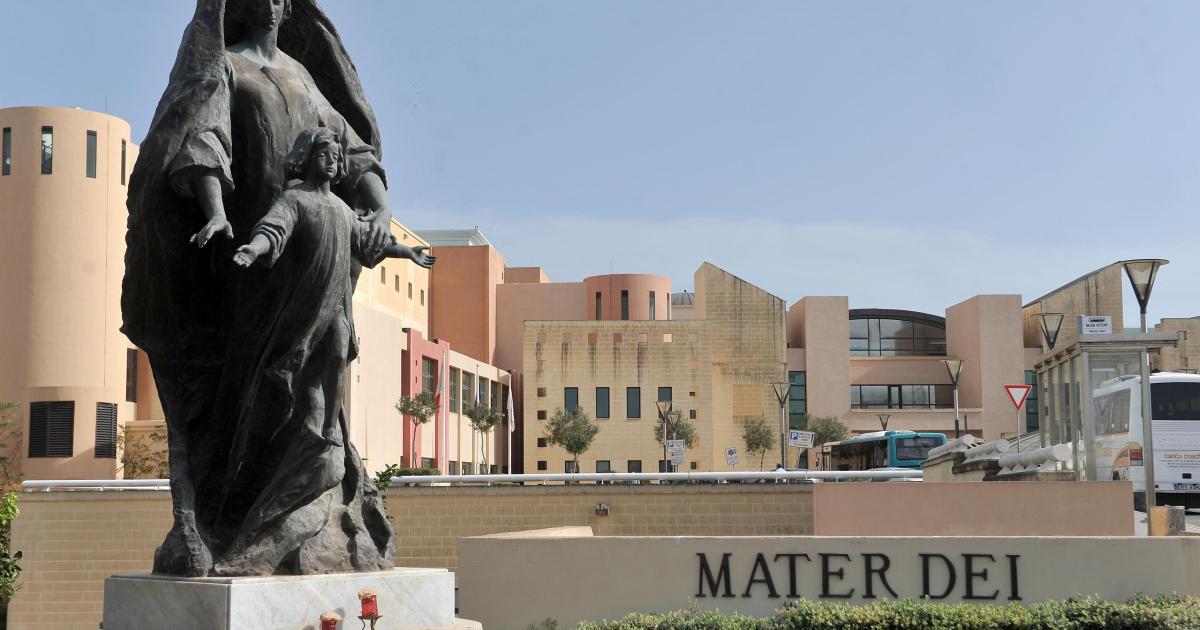By Claudia Calleja
A 69-year-old Brazilian woman legally working in Malta was denied a medical procedure at Mater Dei Hospital because, despite having paid National Insurance for three years, her age makes her ineligible for free healthcare. Carlinda Maria Torres de Oliveira Neves moved to Malta on a legitimate work permit. For the past three years, she has been paying National Insurance (NI) – even though the law says she should not have been – and receiving dialysis treatment for diabetes. However, when she went to Mater Dei Hospital last week for a procedure to unblock her fistula (a surgically created connection between an artery and a vein used to administer dialysis) the intervention was cancelled, despite her presenting documentation proving her legal status and payslips. She was told that because she was over 65, she should not have been paying NI and is therefore ineligible for free healthcare. Yet, two days later (on Friday) her dialysis continued as usual, leading her son to believe it was a “bureaucratic issue”. Her son, Dennes Torres, who has been living in Malta for eight years and runs an IT consultancy business, spoke out about this because he feels it exposes discriminatory practices. Under Maltese law, people over 65 can continue working but do not pay NI. When it comes to non-EU workers, also known as third-country nationals, they are entitled to free healthcare after proving they paid NI for a year. But the question is – what if a TCN comes to Malta at the age of 65 or after? Malta and Brazil do not currently have a bilateral social security agreement that coordinates contributions or benefits between the two countries – by, for example, recognising the NI paid in Brazil. Dennes explains that he brought his mother to Malta about three years ago after the passing of her own elderly mother, with whom she had been living under the supervision of a caretaker in Brazil. After researching Maltese laws, checking with lawyers and government officials what his options were to bring his mother to live with him, Dennes followed the recommendation received and put his mother on his company’s payroll. As he filled in her paperwork, he noticed that the law stated she could not pay NI due to her age but he says she went on to pay the contributions based on advice from a reputable firm. For three years, everything seemed in order. Carlinda lived in Malta and benefited from the healthcare in exchange for NI payments. As her health deteriorated, she began receiving dialysis treatment three times a week. But on the day of her scheduled procedure, she was denied care. Dennes expressed concern that this could eventually affect her access to dialysis, which is a life-saving treatment. He believes this is not just a personal issue but one that affects many other foreigners in Malta who are over 65. “We are willing to pay NI. We actually paid it. This is a problem for every foreigner in Malta who reaches over 65,” he said. He also indicated that if this situation remains unresolved, he may have to leave Malta and relocate his business. Dennes criticised the system for suggesting private insurance as the only solution, despite the fact that most private insurers do not cover pre-existing conditions like diabetes. “In my mother’s situation, it’s useless,” he said. He noted that, under current rules, third-country nationals become entitled to public healthcare after paying NI for one year. Before that, they must rely on private insurance – which often excludes chronic conditions like diabetes. He pointed out the dilemma this creates for TCNs with chronic but manageable diseases, who may be left without care for up to a year due to this regulatory gap. Furthermore, he highlighted that Maltese law does not automatically recognise parents as family members under its Family Reunification Regulations for TCNs. Questions were sent to the Health Ministry and Social Policy Ministry.
